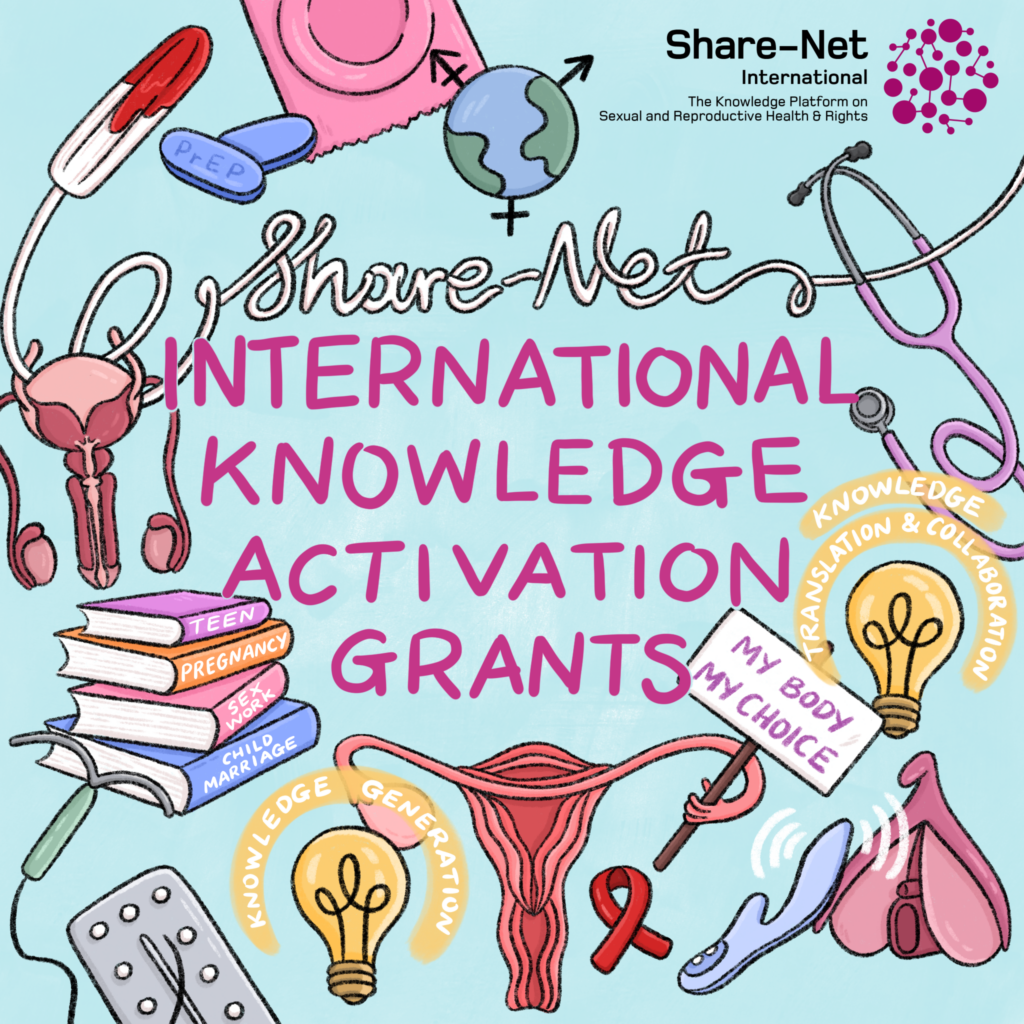In February 2023 AFEW International will start a new project within the Share-Net International Activation Grants program, supporting access to Sexual and Reproductive Health and Rights.

AFEW International became one of 13 grantees selected through the Share Net participatory selection process. The groundbreaking projects from all over the world cover topics including transmen’s and non-binary people’s access to abortion services, facts about condoms and sex between women beyond penetration, a mobile app offering women and girls facing gender-based violence and gender inequality access to support and services, breaking taboos on sexual assault in universities, reforming colonial-era abortion law in Sierra Leon, and disseminating sexual and reproductive health and rights information via digital art!
Activities of AFEW International will address the current knowledge gap about the effective sex treatment strategies for LGBTI communities affected by problematic chemsex living in hostile environments in EECA region.
Factors related to chemsex (use of drugs before or during sexual activity) and its influence on physical health among MSM have been well studied in past years and are successfully addressed in many countries in harm reduction services. At the same time, the evidence to run services tailored to the needs of LGBTI people and focused on recovering the ability to have sober, pleasurable sex is under-researched. While in high-income countries, this gap is ensured to some extent by general sexual health clinics, such LGBTI/MSM sensitive services in less-developed countries are nearly absent.
In the framework of the Activation Grants program, AFEW International will develop the report from participatory research analysing the current state of the art regarding the needs of problematic chemsex users and counsellors regarding the effective interventions focused on restoring abilities to enjoy pleasure from sober sex. For the study purposes, AFEW International is going to perform desk research, gather information about the needs and current experiences of existing services through CBPR (Community Based Participatory Research), interview the individuals providing sexual health services for chemsex users, and collect the good practices.
We expect that our chemsex treatment guide targeted at policymakers and sex counsellors will increase the access of policymakers and practitioners to evidence-based knowledge about effective chemsex treatment strategies, allowing them to make informed and effective decisions on the program, policy, and practical (client) levels. As a result, those affected by chemsex will get care meeting their needs, allowing them to restructure their sexual patterns, get more control over sexual life and (re)develop intimacy, leading to ensured access to sexual rights on an individual level.



